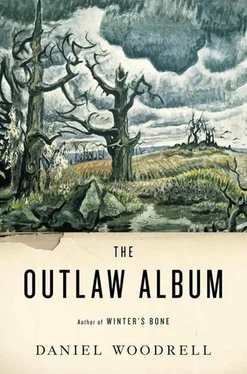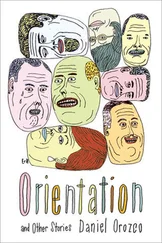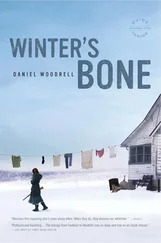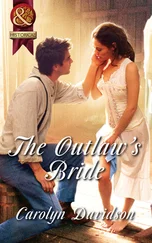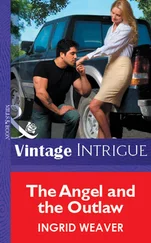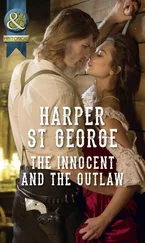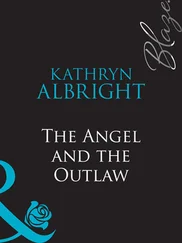Sleepy said, “Oh, my—look at them wheels. That kind costs plenty. ”
“Is that one’s hair yellow?”
“Them boys look like they’d be easy—but there’s the man now, going up to the house for his eats.”
“Those hats hid the colors.”
“I won’t show my gun ’til they show theirs.”
The lane in is narrow, with separated wheel ruts coated by white chat and a taller mohawk of grass between. Every passing tire spreads the chat a bit more and deepens the ruts likewise. The farmer steps onto the porch as Sleepy drives near. Through the screen door I can see a woman of wife age, and a grown son in shadow behind the screen. Sleepy and the farmer lock eyes a minute with the engine running, then Sleepy turns the key. He says, “Stand in the yard, there, and look decent unless I call you over.”
“I have been instructed and will comply.”
I take my stand by the tailgate and wait. Chickens range about the yard, flapping and pecking, murmuring to each other, the kind with red leggings and sharp clucks. Sleepy and the farmer meet on the porch, and the wife steps out while the son lingers on the other side of the door to be nearer the shotgun rack, I imagine. That swing chair on hair ropes is just for show, it seems, and couldn’t hold much weight, the hair being loose and rotted, ready to snap. The wife is a pretty lady but doesn’t look too good just now—pale, hands at her sides, like she’s expecting to see her world flipped wrong way up and dropped on its head at any instant now. Her lipstick is perfect even on lips shaking that way. The farmer is trying to speak back, but pretty soon he stops and Sleepy leans close to him and keeps talking. Young corn smell is coming strong across the yard, with the smell of turned dirt, and chickens. That son opens the door and stands in the way of it closing.
He’s the shiny boy my sleep sent to me. Yellow hair is quite clearly boiling bubbles on his head.
Sleepy laughs alone, the only laugher on the porch. I can hear him say in slowed words, plain and loud, like talking to a kid, “Now, Edward, you’ve known me most all my life—you know damn well that wasn’t me you seen.”
You have to believe your dreams keep your best interests in mind and wouldn’t send anybody wrong to you. I went without thinking or making the choice over the grass to the steps, the way my sleep would want, and swung my dots, sliding past the wife and the farmer. The boy looks at me like he doesn’t remember bicycling through fields of waving grain all night so clear as I do.
“I’m here about your yellow hair.”
“I’m listenin’ to what they say.”
“Don’t you have wooden shoes you wear sometimes?”
“I know who you are.”
I start to reach for his hand, to hold it and feel the warm fingers, and splash the other hand up to his head of boiling yellow and pop those hot bubbles with my fingertips, gather the bubbles and pop, pop, pop but you can startle dreams with sudden changes and they lose their shape and drain through the cracks to somewhere you can’t find, so I don’t. “Maybe you only wear them for going out bicycling?”
“You need to get off this porch.”
Sleepy clomps down the steps and into the yard, suddenly stops, goes on high alert, raises his nose, and takes several big sniffs of the air. “Is that your barn burnin’?”
The farmer, the wife, the son, all rush down the steps, into the yard for a view of the barn. They cluster together. The farmer says, “I don’t see any smoke.”
I follow the family down and stand still behind the boy, drinking his shadow, and it has all the things inside I hunt. I don’t make a move to touch him on his arm fat with muscle, the skin browned from field work, or poke a finger through the hole torn in his shirt by the armpit and tickle. Patience is the quality most lacking in people of my group, and impulses must be recognized and arrested and considered before taking action, or else the flicker of a bad idea unchallenged can instantly make you swing a sharp instrument of hurt into the area of someone you had ought to love but can’t for a second. I have learned exactly how patience looks when standing in public view and I strike that look in the farmer’s yard.
Sleepy stares at the barn, tilting his head side to side as if confused by what he sees and wanting different angles, then says, “Oh, maybe you’re right—it ain’t burnin’, is it.” He climbs into the truck, waves a small wave, fires the motor. I make those dots jump apart and back together fast the way I walk swinging to the truck and hop into the seat. Sleepy eases us away on the lane real slow. I don’t even need to look at the boy to know everything in his chest and how I’ll collect him when the right movie shows. After we hit the paved road and go faster, Sleepy starts to whistle, not that well, a song I recognize before long, though, one of the ancient tunes we’ve all felt, but I couldn’t put any name to it.
My brother left no footprints as he fled. There’d been three nights of freeze, and the mud had stiffened until the sloped field lay as hard as any slant road. Morning light met rime on the furrows and laid a shine between rows of cornstalks cut to winter spikes, and my brother, Harky, a mutinous man with a fog patch of gray hair drifting to the small of his back and black-booted feet, crushed the faded stalks aside as he came to them, and only these broken spikes marked his passing. His strides were long but curiosity curled his path, spun it about in small pondering circles as he glanced behind, followed by abrupt, total shifts in forward direction. The mud was unblemished but for the debris of cornstalks, and some of the pale dried shucks were spotted by kerosene drippings. Harky still carried the fuming torch he’d made of a baseball bat and a wadded sheet, the torch he’d used to set the neighbor’s house afire, to make amends, to show his love, and flammable droplets fell beside him partway across the field.
Our father chased my brother. He chased him down the road from the burning house, into the field, wearing a white bathrobe and loose slippers. With each step he fell farther behind as his old sick feet skittered over uneven furrows and tripped. The nosepiece from his oxygen tube was yet pinched to his face, and a length of tube waved about while the robe flapped open. He fell repeatedly and stalks stabbed his skin broken at the ankles and hips. He stood up from the field six times, or only five, then again tripped over a furrow, collapsed to the frost, and lay there, face to the mud, withered fingers clenching at stalks, robe flung wide.
Smoke and shouts drifted from the neighbor’s house.
Father’s breathing could be heard beyond the fence line, up the road, the hoarse snatching after breath, rattling inhalations. He was raw beneath the robe, his skin ashen and his blood thinned by medications. The broken spots on his ankles and hips quickly turned blue and leaky. He held on to the oxygen tube with one hand, holding it still and inhaling, as if there might be a trapped bubble of pure oxygen his lungs could burst and pull through in shreds. Fogged eyeglasses hung from a cord around his neck, and his glum white private hair and forlorn flopping parts were open to the cold. He lay there weak as a babe, but a babe who’d already snuck a drink this morning, scotch, and chased it with a forbidden cigarette.
Across the mud and downslope he spotted Harky and his fog of hair scuttling from the field at the far end, plunging over the wire fence and into the thicket. Six foot two of man, with a jostling cloud riding his back and a blackened baseball bat in one hand.
Father rose to his knees, gasping, then stood and wobbled his way back to the road, legs too limber for firm strides, blood from his broken spots making lazy trails down his skin. Our father, the joking drunk who was so bitter when sober, shuffled past the edge of the fallow field, toward the big hunkered old house of glowering white that had been the home of our mother’s family for three generations before recent inheritance delivered it down to us Dewlins. Mother waited near the door, pacing between the four-sided pillars on the veranda where she’d played jacks as a girl, hopscotch, her eyes glistening and rounded with anger. Her hair was a carefully selected chestnut hue, girlishly long and casually brushed, and she wore a winter coat belted over her bed clothes. She watched our father limp to the house and did not reach out to help him until he climbed the steps. They both paused on the veranda and looked across the road, toward the flames dancing on the shiny new log cottage of the only close neighbor, a man named Gordon Mather Adams, a retired schoolteacher of some sort, a man I’d never spoken to, busy beside his eastern wall with a yellow garden hose and a panicked air, the excess water running from the flames down the slope of winter grass toward the river behind his house.
Читать дальше
